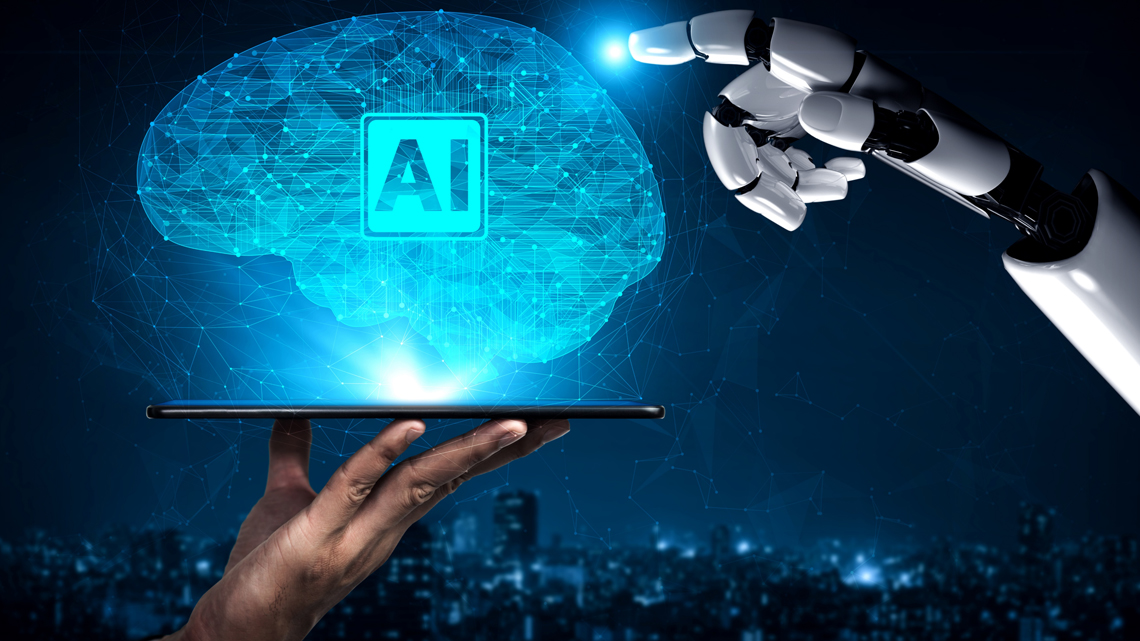
Artificial Intelligence (AI) is a game changer in the marketing realm as it offers smarter, data-based decisions and promotes real time personalization at an extended level. With the rising consumer expectations and increasing competition, AI is a valuable resource that helps marketers analyze large and complex datasets, predict consumer behaviors and offer new possibilities such as the delegation of campaign management, content generation, behavior forecasting and even conversational and customer engagement solutions over numerous channels. Tools like chatbots, predictive analytics, and Gen AI tools are all readily available and commonly adopted by millions of businesses already. AI has become essential due to the value it brings to marketing growth. This blog illustrates what AI is in the context of marketing, the core functions it influences, potential benefits, and how brands can integrate it to drive improved outcomes.
What Is AI in Marketing?
AI in marketing refers to the process of improving campaign efficiency, decision making and customer messaging by leveraging machine learning algorithms, data analytics, and automated systems. AI integrated tools can process and analyze data, adapt to new knowledge insights, and help marketers make informed decisions and facilitate recommendations that are uniquely aligned with their goals independently of human intervention.
Difference between automation and AI-driven intelligence: While tech powered automation involves streamlining workflows such as sharing emails, customer follow ups, reporting etc., AI marketing centers on various factors like analyzing customer behaviors’, forecast of future patterns, leading to enable a more result-oriented user interactions and improve offer and content adjustments according to a user interest.
Overview of current state of adoption
As the market evolves at a rapid pace, AI adoption also accelerates. By reviewing the recent industry reports, 80% of marketing professionals have relied on artificial intelligence in various forms. AI powered CRMs, predictive analysis, customer support assistants, and other comparable solutions; AI is setting the standard in today’s marketing landscape.
How AI Is Transforming Core Marketing Functions
- Data-Driven Insights & Predictive Analytics
AI processes large amounts of information to discover trends and to understand behaviors so that marketers can often identify leads that are of high value, understand customer purchase patterns, and act accordingly to make proactive marketing decisions.
- Personalized Marketing at Scale
With the advent of AI, brands are able to provide personalized experiences across all channels. These are probably in the form of emails, recommendations of interested products or content. Artificial intelligence facilitates marketers the ability to scale one-to-one marketing with greater effectiveness.
- Content Generation & Creative Optimization
AI tools can create promotional copy, headlines, and images for influencer marketing. More remarkably, the tools can also test and optimize content to find the best performing drafts for the audiences they are intended for.
- Campaign Management & Ad Targeting
AI takes a more applicable and differentiated process approach to improve ad performance. It assists optimizing budgets and effectively targets the potential prospects based on real-time data. The benefit of AI in advertising is significant, as the Google ecosystem and Meta platforms delegate budget for better machine optimization aspects.
- Chatbots & Enhanced Customer Engagement
AI chatbots facilitate immediate response to customer inquiries and at scale. By utilizing AI in customer service, brands are able to scale engagement and customer support activities, releasing human assistance for more complex tasks and inquiries. AI tools allow 24 hours support and the responses are highly personalized by evaluating the past interactions, intent and previous history.
Benefits of Using AI in Marketing
- Improved efficiency and cost reduction
Utilizing machine intelligence, brands can automate workflows like segmentation, A/B testing, and reporting—optimizing time and budget. This enables the marketing team to consider strategy and creativity more significantly.
- Enhanced decision-making and performance tracking
Evaluating the marketing performance in real-time and analytics enable quick, intelligent marketing decisions. AI informs marketers regarding performance effectiveness and suggestions to iterate and improve.
- Personalization and improved customer experience
Personalization using AI is more accurate and scalable. It is more focused on user actions, adapts messages and promotions accordingly, translating into more engagement and delight for customers.
- Enables enterprise-level capabilities without proportional investment
AI removing barriers to entry and equipping small and mid-sized businesses with advanced tools and insights, which are previously reserved for large companies.
Best practices for AI Enabled Marketing
- Start with High-Quality, Relevant Data
The efficiency of AI driven marketing is solely impacted by the clarity, structure and accuracy of data. Brands should invest in efficient database maintenance while integration for enhanced results.
- Align AI Tools with Clear Marketing Objectives
Illustrate the marketing milestones specifically such as lead generation, customer retention, ROI, and choose tools that align with these goals.
- Maintain Human Oversight and Creativity
Machine intelligence alone is inefficient to create an outcome that anticipates your expectations. A merged approach with human supervision and machine intelligence will assure relevance, quality messaging, and also enhance the potential for campaign success.
- Prioritize Transparency and Privacy
Articulate a morally responsible AI usage. Practice privacy policies in compliance with GDPR, CCPA, and such data protection regulations.
Conclusion
Reflecting on the past several years, the adoption of artificial intelligence has skyrocketed in the marketing field. From behavioral pattern analysis to personalized customer experience at scale, AI adoption is transforming campaign effectiveness and personalization with unmatched capabilities. With the ease of accessibility, convenience for continuous iteration and scaling, artificial intelligence tools and systems allow businesses to establish explosive growth without a large financial outlay. Success is determined by planned course correction, toward your specified goals, ethically respectful practices, and most importantly incorporation of human judgment. Marketing professionals who responsibly employ AI in business will not only compete but chart a successful future.
To read more, visit APAC Entrepreneur.
